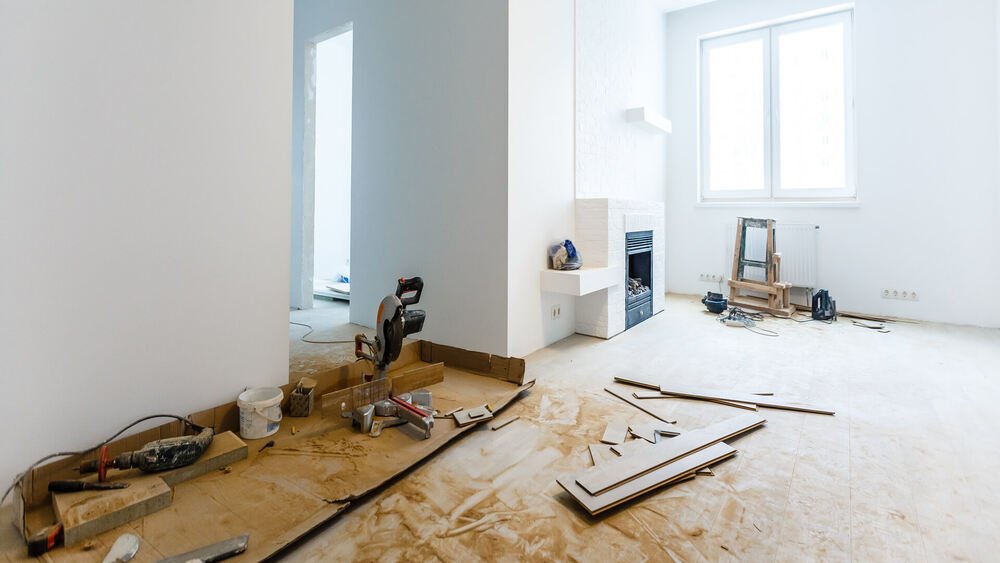Choosing to renovate your home is a significant decision. A renovation can bring a great sense of accomplishment and revitalize a home. But should you do it?
Many factors go into a decision about choosing to renovate. For example, there has to be a sufficient budget available. There also needs to be enough space depending on the desired renovation type. And in general, necessity is helpful: if implementing simple tips to make your kitchen look neater can lead to loving your kitchen, you probably don’t need to renovate that room.
Home renovation can be a huge undertaking. Once it’s all said and done, however, the renovation could be worth it. In this blog post, we’re going to share why you should:
- Evaluate your space
- Analyze your finances and timing
- Get professional help
For homeowners seeking to determine whether the time is right for a renovation, this guide will walk you through the process the right way.
Evaluating Your Space
The biggest factor in deciding whether or not to renovate your home is evaluating what space in your house needs updating. If an unfinished room or area of the house could use some love, this may be the perfect opportunity to transform it into something more functional.
It’s also recommended to ensure your planned renovations are by-the-book. One of the most frequently asked questions on condo ownership is what can and can’t be improved by the homeowner, and for detached homes, city and state permitting is vital.
Attics and basements come to mind first. Attics and basements can be turned into:
- Bedroom
- Playroom
- Office
- Storage space
- Library
- Hobby room
Besides creating new rooms, renovation can mean improving existing spaces. For example, the bathroom and the kitchen are two popular room choices for renovation.
Prevailing wisdom states that bathrooms and kitchens are the best rooms to renovate if you want to raise the value of your property. That’s because people spend significant time in each of these rooms regularly.
Smaller renovation options are helpful as well. For example, just a few minor projects would improve some parts of the house. Things that come to mind are painting the walls or replacing flooring. These smaller renovation projects are great options for homeowners working with smaller budgets.
Analyzing Finances & Timing
Before taking on any home renovation project, you need to figure out how much money you have available for the project. You’ll also want to know when you would like it completed. This will help determine which renovations are feasible and which are beyond reach.
Keep in mind that some renovations may eventually cost more than initially thought. Anyone who has watched a television show about renovations has seen this play out. Those considering a renovation should have some additional budget available just in case it’s needed.
Finding Professional Help
If, after analyzing and evaluating your space and finances, it turns out that renovation is suitable for you and your family, then finding professional help should be one of the first steps in beginning this process. Unless you’re a professional contractor, you probably don’t know how to repair and restore an old house.
Whether hiring an architect or interior designer for big projects or a handyman for smaller tasks like installing fixtures or fixing cabinets, having someone who knows what they are doing can save time and money in the long run.
A professional can answer any questions about the renovation you’re seeking. Because of their experience, they’ll be able to explain all of your plan’s benefits and possible drawbacks.
Speaking of benefits, let’s explore that next.
Benefits of Renovating Your Home
Renovating your home has many advantages. These benefits include:
- Increasing the value of the property
- Adding space and comfort
- Revamping the look and feel of the home
There are plenty of other benefits to consider; however, we will detail these three. Let’s take a look at them, starting with increasing property values.
Increase Property Value
Renovating a home can increase its value exponentially, especially if renovation projects are strategic and well-executed.
Flooring, paint colors, kitchen upgrades, and other interior elements can immensely impact the home’s aesthetic and its associated worth. Additionally, energy-efficient updates such as furnace replacement or installing double pane windows can decrease utility bills while simultaneously increasing property values.
Taking on the challenge of transforming a home through renovations benefits those living in it. It can make the biggest return on investment regarding lifestyle and financial returns.
Improve Efficiency and Comfort
Renovations don’t always have to be about aesthetics. Case in point: They can also be about improving efficiency and comfort.
For example, replacing old windows with energy-efficient ones helps regulate temperatures in your home while reducing energy costs. Similarly, modernizing heating systems with new technology can help keep you comfortable during cold winter months without breaking the bank on monthly bills.
Adding Space
Another great advantage of renovating is that it allows you to add extra space to your home if needed.
Home additions such as bump-outs are ideal for creating an extra bedroom or office space that wasn’t previously available. And since these additions will match the existing style of your house, they won’t look any different than other parts of your home.
According to Forbes, adding a bump-out will increase the home’s value.
To Renovate or Not to Renovate
So, whether you want to add square footage (bump-out), create a new room (renovate an attic), or improve an existing one (new flooring), renovating a home carries tremendous benefits that will be worth it in the end.














